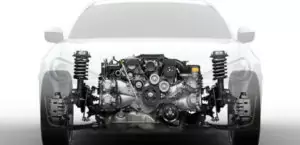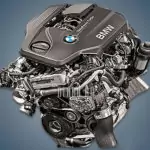BMW N47D20 diesel engines with a volume of 2.0 liters have been produced since 2007 and are installed on all compact and medium-sized models of the concern, including Mini cars. For some time, such diesel engines were installed on many Toyota compact vans and crossovers.
The N47 family also includes: N47D16.
The engine was installed on:
- BMW 1-Series E87 in 2007 – 2013; 1-Series F20 since 2011;
- BMW 2-Series F22 in 2013 – 2015;
- BMW 3-Series E90 in 2007 – 2013; 3-Series F30 in 2011 – 2015;
- BMW 4-Series F32 in 2013 – 2016;
- BMW 5-Series E60 in 2007 – 2010; 5-Series F10 in 2010 – 2017;
- BMW X1 E84 in 2009 – 2015;
- BMW X3 E83 in 2007 – 2010; X3 F25 in 2010 – 2014;
- BMW X5 F15 in 2013 – 2015;
- Toyota Auris 2 (E180) in 2015 – 2018;
- Toyota Avensis 3 (T270) in 2015 – 2018;
- Toyota RAV4 4 (XA40) in 2016 – 2018;
- Toyota Verso 1 (AR20) in 2014 – 2018;
- Mini Countryman R60 in 2010 – 2017;
- Mini Hatch R56 in 2010 – 2013;
- Mini Paceman R61 in 2012 – 2016;
- Mini Roadster R59 in 2012 – 2015.
Specifications
| Production years | since 2007 |
| Displacement, cc | 1995 |
| Fuel system | Common Rail |
| Power output, hp | 116 – 177 (N47D20, versions K0, U0 and O0) 204 (N47D20 TOP or N47D20T0) 116 – 184 (N47TU, versions K1, U1 and O1) 218 (N47S1 or N47D20T1) |
| Torque output, Nm | 260 – 350 (N47D20) 400 (N47D20T0) 260 – 380 (N47TU) 450 (N47D20T1) |
| Cylinder block | aluminum R4 |
| Block head | aluminum 16v |
| Cylinder bore, mm | 84 |
| Piston stroke, mm | 90 |
| Compression ratio | 16.0 – 16.5 (N47D20) 16.5 (N47D20T0, N47TU, N47D20T1) |
| Features | intercooler |
| Hydraulic lifters | yes |
| Timing drive | chain |
| Phase regulator | no |
| Turbocharging | yes (N47D20, N47TU) Twin-Turbo (N47D20T0, N47D20T1) |
| Recommended engine oil | 5W-30 |
| Engine oil capacity, liter | 5.2 |
| Fuel type | diesel |
| Euro standards | EURO 5/6 |
| Fuel consumption, L/100 km (for BMW 320d 2010) — city — highway — combined |
6.0 4.1 4.8 |
| Engine lifespan, km | ~250 000 |
Disadvantages of the N47D20 engine
- The most famous problem of the motor in stretching the timing chain on runs up to 100,000 km;
- Replacing the timing kit is done only with the removal of the engine and is not cheap;
- Swirl flaps in the intake manifold quickly overgrow with soot and jam;
- The crankshaft damper has a modest resource and may require replacement by 100,000 km;
- Prolonged overheating of a diesel engine often leads to cracks between the cylinders.







Some of the provided points here are not really true.
> The most famous problem of the motor in stretching the timing chain on runs up to 100,000 km
Here should be said which exact specification it is related to:
for the specifications of the first revision (Mostly E series, i.e. N47D20T0) the “normal” safe milage is about 180k km. On the second revision, (i.e. N47D20T1 – mostly F series) timing chains mechanism has been revised. So here normally engines could run 200-250k and have no signs of stretched timing chains.
However, on the engine N20, there is the problem with timing chains on 80-100k km, but the root cause there are plastic chain dampers.